This article was co-authored by Tasha Rube, LMSW. Tasha Rube is a Licensed Social Worker based in Kansas City, Kansas. Tasha is affiliated with the Dwight D. Eisenhower VA Medical Center in Leavenworth, Kansas. She received her Masters of Social Work (MSW) from the University of Missouri in 2014.
This article has been viewed 26,976 times.
Most people aren't big fans of hospitals. Spending any amount of time in a hospital bed can be scary, boring, annoying, or depressing – sometimes all at the same time. Long stays are especially difficult, and you may need to get creative to find ways to deal with it. Try to find ways to entertain yourself. If you can find an activity that makes you feel like you're accomplishing something, it won't seem like so much wasted time.
Steps
Coping Emotionally with a Hospital Stay
-
1Stay in touch with your friends. Keep your phone or laptop near your bed, and set up alerts for all types of new messages. Maybe you can't be with them in person, but you don't have to be out of the loop entirely.[1]
-
2Ask your doctors questions. If you're going in for surgery, ask your doctor to give you a detailed idea of what to expect. If you're recovering from an injury, ask your nurse if there are any things you could do to speed up the process. If you're curious about medicine in general, this is a great time to find out about the field from professional health care workers.[2]
- It is not uncommon for a long stay in the hospital to inspire a patient to become a nurse or doctor. Who knows, this annoying hospital stay might change your life.
Advertisement -
3Meditate. A few minutes a day can help reduce stress, lower heart rate and blood pressure, and even reduce pain. Your hospital may offer meditation sessions as a part of therapy. If not, it's simple to do on your own.[3]
- Assume a comfortable position, either sitting or lying down, and focus your attention on something simple, like a candle or a plant. Look at the object, but try not to think about it in words.
- Take deep, relaxed breaths in through your nose and out through your mouth.
- Repeat (aloud or in your head) a word that you find soothing. You can use the traditional words “Ohm” or “Peace,” or any word you like that makes you happy.
- Focus on your breathing, and try not to think about anything else. If you find your mind wandering, calmly release the thoughts and focus on how your breath moves through your body.
-
4Challenge negative thoughts. You may be more prone to negative thinking when you are in the hospital, but challenging negative thoughts can help. When you notice a negative thought, the first thing you should do is acknowledge it. Then, you can begin to examine and rephrase the thought and turn it into something more realistic.
- For example, you could ask yourself questions such as, “What is the worst case scenario? How might that affect me or my life? Why am I afraid of this happening?”
- You can also try to turn the thought into something more productive or realistic by examining the evidence that you have to support the thought. For example, if you catch yourself thinking, “I am never going to be able to leave this hospital,” then take a moment to examine your evidence. Is that the most likely outcome to your situation? What evidence do you have to support this thought? Is there evidence to support another outcome? If so, what is it? What actions can you take to improve your chance of a positive outcome?[4]
-
5Reassure yourself. Hospitals can be scary. But keep in mind that a hospital is one of the safest places anyone can be. The doctors are highly trained and are prepared to deal with any problems that might arise. Still, if you are struggling to feel calm, try reassuring yourself with an affirmation, such as:[5]
- ”I am safe here.”
- ”I feel relaxed and peaceful.”
- My life is filled with good things and that will continue.”
Entertaining Yourself in the Hospital
-
1Read. Try something you wouldn't normally read – experiment with genre fiction like sci-fi, romance, horror, mysteries, or thrillers. Magazines are also entertaining, and will keep you up-to-date on the current happenings in the world.
- Ask your friends and family for suggestions. Read their favorite book, and maybe you'll understand them a little better.
- Humorous books are a great idea – laughter will help keep your spirits up.
-
2Play games. Playing games on your phone, tablet, or GameBoy will provide great entertainment for hours. Try different games than you usually play – you might find some new favorites.
-
3Listen to music. Music is one of the best ways to get in touch with your inner self. Crank up the volume on your headphones and indulge in your favorite bands. It will make you feel more centered, calm, and confident.[6]
-
4Watch TV. The occasional movie or TV show is a good way to entertain yourself when you're stuck in bed. You can watch the TV in your room, or stream shows on your laptop. Try not to watch TV all day, though, or you may wind up feeling tired and frustrated.
- If your room has wi-fi, plug a streaming stick into the TV's HDMI port and binge-watch a whole season of a favorite show. You can plug headphones into a Roku remote, which is nice if you are sharing a room.
- Watch interesting documentaries about subjects you want to learn more about. It will give you things to talk about, when visitors stop by.
- Google lists by film critics, of classic movies that everyone should see at least once. You might discover a new all-time favorite.
-
5Explore podcasts. There are podcasts on any subject you can imagine, and a lot of subjects you hadn't even thought of. Google podcast recommendations, and try a few new titles each week. Listening is an entertaining way to pass time, and you might pick up a new interest or hobby.
- Podcasts are also good to listen to while you do something with your hands, like knitting or drawing.
-
6Learn something new. Try learning new hobbies or crafts that you can do in the hospital. Perhaps you could try something new that challenges you a bit, if you feel able. Pick up a simple hobby such as drawing or knitting. Try to pick a hobby that does not require much physical activity; after all, you don't want to injure yourself in the hospital.
Making Yourself More Comfortable in the Hospital
-
1Bring a blanket from home. Surround yourself with as many comfortable things from home as the hospital will let you have. You'll feel safer, and sleep better, with your own pillows and blankets.[7]
- It doesn't matter how old you are: there is no shame in asking for your favorite stuffed animal when you're stuck in a hospital bed.
-
2Wear clothes you like. Unless the hospital has unusually strict regulations, you can probably wear your own pajamas or your favorite T-shirt with shorts or yoga pants. Wearing hospital garb can be depressing, because it makes you forget you are a whole, entire person – not just a “patient.”[8]
- You will also feel more comfortable entertaining guests when you're wearing your own clothes.
-
3Display photos of friends and family. Print out a few photos of people you love, and frame them. Put them out where you can see them. It will remind you that you are loved.[9]
-
4Stock up on your favorite snacks. See if your doctor will allow you to supplement your hospital meals with snacks. Be sure to let your doctors and nurses know exactly what you are eating.
- If your doctor schedules any tests or procedures, find out if you need to fast for a certain period beforehand. If so, put the snacks away until your doctor says it's okay to have them.
References
- ↑ https://www.mdanderson.org/publications/cancerwise/2011/10/tips-for-coping-through-a-long-hospital-stay.html
- ↑ http://www.dukechildrens.org/patient_and_visitor/preparing_your_child
- ↑ https://craighospital.org/resources/meditation-for-stress-management
- ↑ http://psychcentral.com/blog/archives/2013/07/13/what-to-do-with-worry-thoughts/
- ↑ http://www.calmclinic.com/anxiety/treatment/affirmations
- ↑ https://www.mdanderson.org/publications/cancerwise/2011/10/tips-for-coping-through-a-long-hospital-stay.html
- ↑ https://www.mdanderson.org/publications/cancerwise/2011/10/tips-for-coping-through-a-long-hospital-stay.html
- ↑ https://www.mdanderson.org/publications/cancerwise/2011/10/tips-for-coping-through-a-long-hospital-stay.html
- ↑ https://www.mdanderson.org/publications/cancerwise/2011/10/tips-for-coping-through-a-long-hospital-stay.html
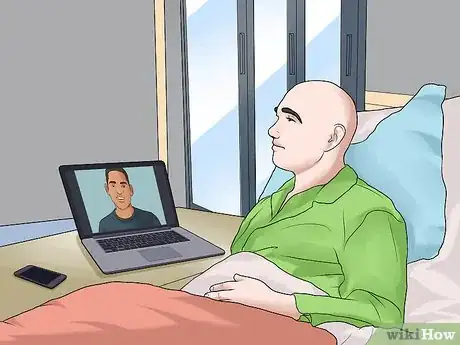
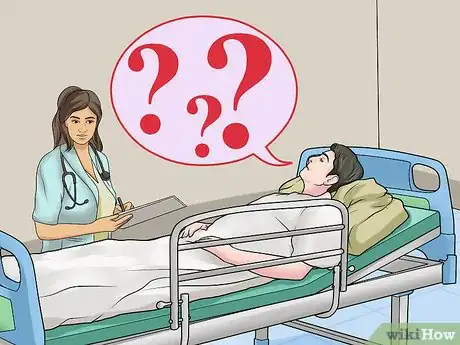

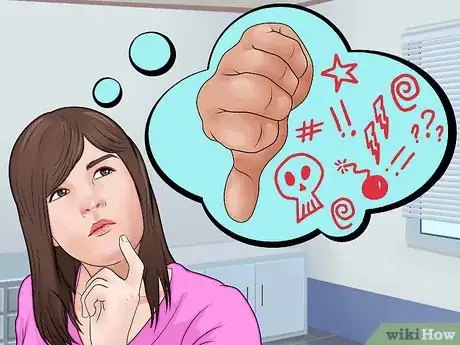
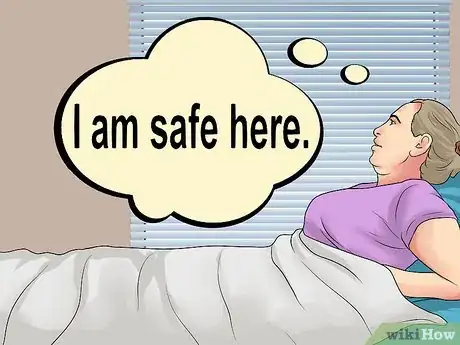

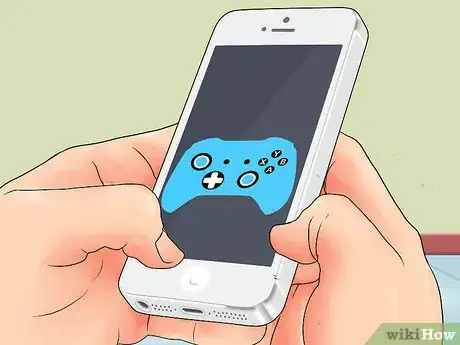


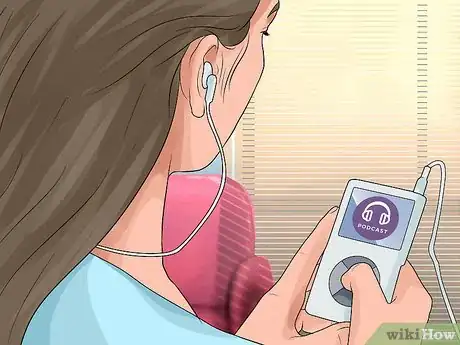
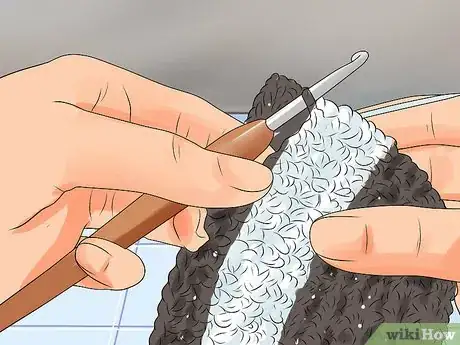
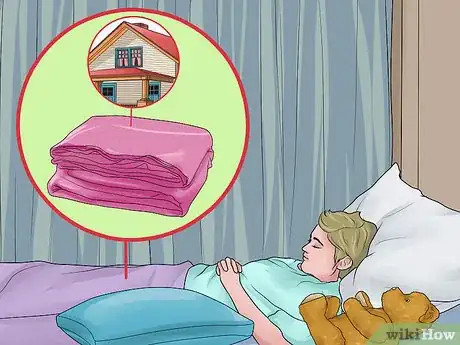










-Step-14-Version-2.webp)




















































Medical Disclaimer
The content of this article is not intended to be a substitute for professional medical advice, examination, diagnosis, or treatment. You should always contact your doctor or other qualified healthcare professional before starting, changing, or stopping any kind of health treatment.
Read More...